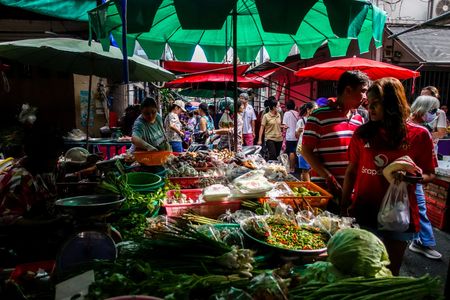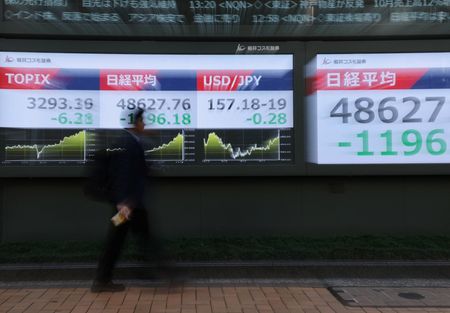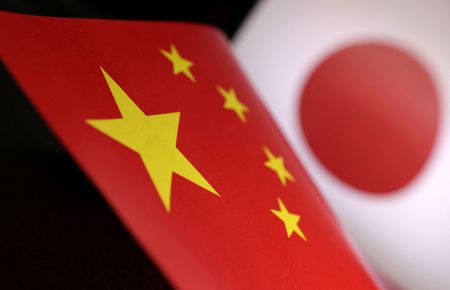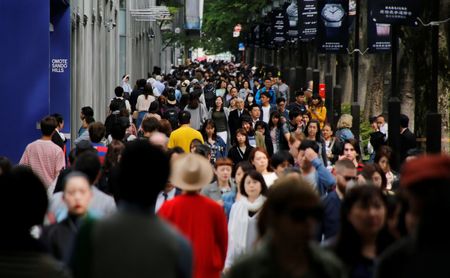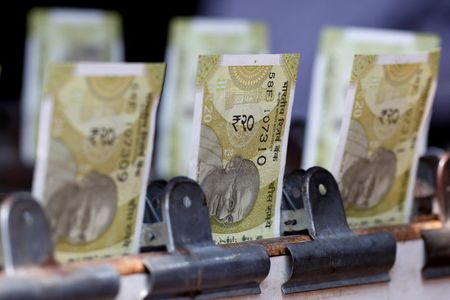By Thanadech Staporncharnchai and Orathai Sriring
BANGKOK (Reuters) -Thailand’s economic stability is underpinned by strong financial and fiscal fundamentals, and government stimulus measures will give growth a boost in the final quarter of 2025, the finance minister said on Friday.
Inflation and unemployment were both under 1%, Ekniti Nitithanprapas told a business forum, and public debt at 64% of gross domestic product was not high and would be kept below a legislated ceiling of 70%.
Further, banks have capital reserve levels higher than minimum requirements, and the country’s international reserves are three times larger than short-term external debt, he said.
“I believe the economy will recover in the fourth quarter,” Ekniti said.
Economic growth was just 1.2% on an annual basis in the third quarter, the weakest pace in four years. Southeast Asia’s second-largest economy, which has lagged peers since the pandemic, has faced multiple headwinds this year, including U.S. tariffs, high household debt, and a strong baht.
TRADE TALKS ONGOING
In a bid to stimulate the economy, the government has rolled out a 44 billion baht ($1.36 billion) consumer subsidy scheme, among other measures.
Ekniti said that next week the government will offer a new package to support smaller businesses and consider steps to fast-track major investment projects, aimed at boosting investments by 200 billion baht to 300 billion baht in 2026.
Commerce Minister Suphajee Suthumpun said the government was trying to increase trade competitiveness as Thai export growth is expected to slow in 2026.
“We still have the issue of the strong baht. If it cannot be addressed or if it remains significantly strong, it will certainly impact exports,” she told the forum.
The baht has strengthened by 5.6% against the U.S. dollar so far this year, making it Asia’s second-best-performing currency after Malaysia’s ringgit.
Suphajee said negotiations on a trade deal with the U.S. were ongoing, with Thailand working on what products it wanted to be exempted from tariffs that Washington has imposed.
She said exporters needed to be aware of U.S. concerns about transshipment, where a third country routes exports through Thailand to avoid tariffs.
“The world is shifting, and more investors are looking to invest in Thailand. But they need to increase their use of local content,” she said.
($1 = 32.4500 baht)
(Reporting by Thanadech Staporncharnchai and Orathai Sriring; Editing by Martin Petty and John Mair)

